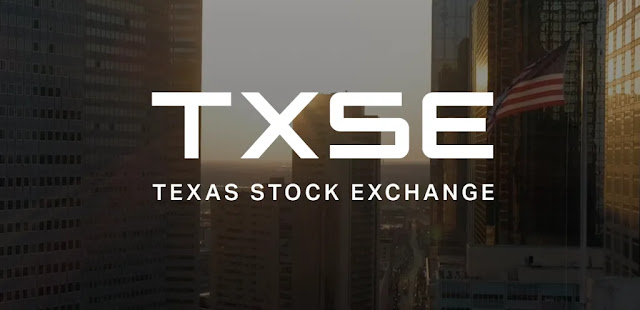Long known as a magnet for capital investment, Texas is now making a major play to solidify its status as a financial powerhouse. The announcement of two competing stock exchanges—one homegrown and the other backed by Wall Street—marks a significant shift in the nation’s financial markets.
The Texas Stock Exchange (TXSE), headquartered in Dallas, was first announced in June 2023 as a direct response to the state’s economic growth and the increasing demand for alternative trading platforms. TXSE founder James Lee emphasized the strategic importance of establishing a national stock exchange outside of traditional financial hubs like New York.
“Texas and the other states in the southeast quadrant have become economic powerhouses. Combined with the demand we are seeing from investors and corporations for expanded alternatives to trade and list equities, this is an opportune time to build a major, national stock exchange in Texas,” Lee said.
The TXSE took a crucial step toward reality in January 2024, filing registration forms with the Securities and Exchange Commission (SEC) after successfully raising $161 million in initial capital. The exchange’s leadership team includes a lineup of influential figures:
Rick Perry – Former Texas governor and U.S. Secretary of Energy
Jeffrey Brown – Former acting general counsel for Charles Schwab and former head of its Office of Legislative and Regulatory Affairs
Jonathan Ross – Former Chief Technology Officer at KCG Holdings, Inc.
These high-profile names suggest TXSE is aiming to position itself as a serious contender in the financial market. The exchange is expected to cater to companies that prefer an alternative to Wall Street’s dominance while benefiting from Texas’s low-tax, business-friendly environment.
NYSE Strikes Back with Competing Texas-Based Exchange
In a move that surprised many in the financial world, the New York Stock Exchange (NYSE) announced plans to launch NYSE Texas, a direct competitor to the TXSE, further cementing Dallas as a future financial hub.
NYSE Texas will be a fully electronic equities exchange, designed to streamline stock trading while tapping into Texas’s rapidly expanding economy. The plan, pending SEC approval, involves reincorporating NYSE Chicago in Texas, effectively shifting part of its operations away from the traditional financial centers of New York and Chicago.
NYSE Group President Lynn Martin underscored the importance of Texas in the financial ecosystem:
“As the state with the largest number of NYSE listings, representing over $3.7 trillion in market value, Texas is a market leader in fostering a pro-business atmosphere. We are delighted to expand our presence in the Lone Star State, which plays a key role in driving our U.S. economy forward.”
NYSE’s decision to set up shop in Texas signals that even the most established financial institutions are recognizing the state’s increasing influence. While TXSE aims to create an alternative to Wall Street, NYSE’s expansion suggests it is unwilling to let a new competitor dominate the Texas market unchallenged.
A Political and Economic Win for Texas
Texas Governor Greg Abbott welcomed the development, calling it proof that Texas is a top destination for businesses and investors.
“This will expand our financial might in the United States and cement our great state as an economic powerhouse on the global stage,” Abbott said. “Working together, we will continue to advance pro-growth economic policies that allow entrepreneurs and businesses to thrive and will make Texas stronger and more prosperous than ever in the history of our great state.”
Texas has long been known for its pro-business policies, including low taxes, fewer regulations, and a cost-effective corporate environment. The addition of two stock exchanges could further solidify the state’s appeal to companies looking for alternatives to traditional financial hubs.
What This Means for Investors and Businesses
With both TXSE and NYSE Texas in the works, the Dallas-Fort Worth area is poised to become a significant financial center. If approved, these exchanges could attract corporations, investors, and traders looking for new listing options.
For businesses, particularly energy, technology, and industrial firms that already thrive in Texas, the availability of a local stock exchange could make it easier to access capital. Additionally, regional investors might find more opportunities to participate in homegrown companies without relying on Wall Street.
Challenges and the Road Ahead
Despite the excitement, both stock exchanges face regulatory hurdles before they can begin operations. The SEC approval process can be lengthy, and the exchanges will need to demonstrate their ability to provide fair, transparent, and efficient trading environments.
Additionally, competition between TXSE and NYSE Texas could create an intense battle for listings, liquidity, and investor trust. While TXSE is positioning itself as an alternative to Wall Street, NYSE’s reputation and existing infrastructure may give it a significant advantage in attracting big-name listings.
Regardless of how the competition plays out, one thing is clear: Texas is no longer just an economic powerhouse—it is becoming a financial one too.

















